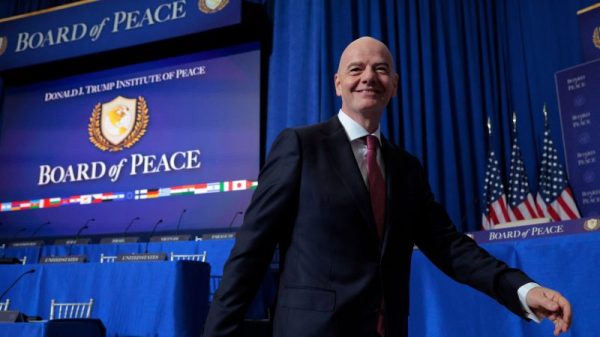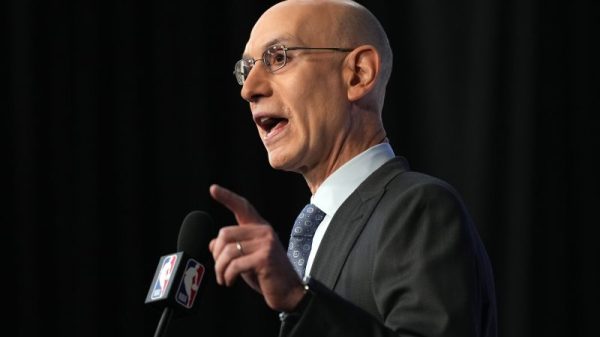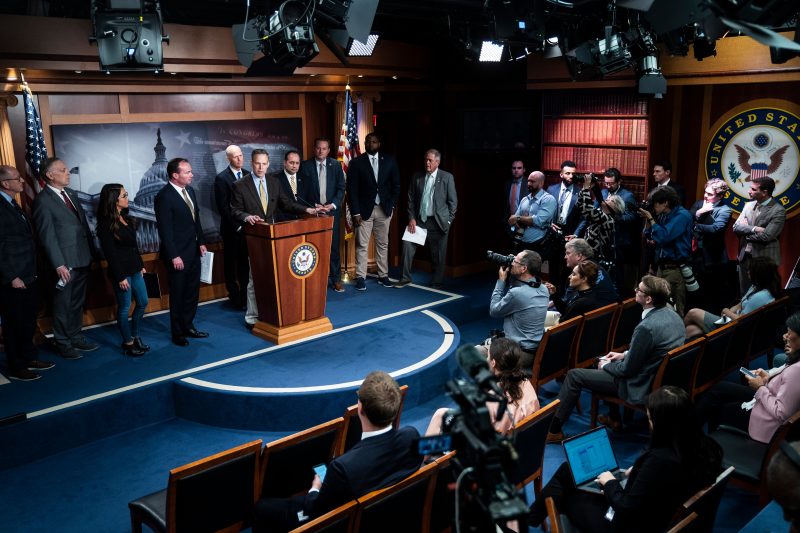The House Freedom Caucus said it’s calling on House Speaker Kevin McCarthy to suspend his negotiation on raising the debt limit with the White House and instead focus on getting the House-passed “Limit, Save, Grow Act” through the Senate.
“There should be no further discussion until the Senate passes the legislation,” a statement from the Republican group said.
The GOP-backed legislation would raise the debt ceiling into next year, slash federal spending by billions of dollars and unwind some of President Biden’s priorities, including his program to cancel college student-loan debt. It was passed in a party-line vote in the House, but is considered a non-starter in the Democratic-led Senate, where it would need to garner at least 60 votes.
In a statement, the roughly three dozen lawmakers from the conservative caucus said the House has “done its job” in passing the GOP bill to raise the debt ceiling before a catastrophic default.
Understanding the debt ceiling
1/4
End of carousel
“This legislation is the official position of the House Freedom Caucus and, by its passage with 217 votes, the entire House Republican Conference,” the members wrote in a statement asking McCarthy (R-Calif.) and Senate Republicans to “use every leverage and tool at their disposal to ensure the Limit, Save, Grow Act is signed into law.”
McCarthy, however, on Thursday told reporters negotiations on the budget were proceeding and that he hoped to have a vote next week in the House on an agreement. Senate Majority Leader Charles E. Schumer (D-N.Y.) said the Senate would leave town for a planned recess but stood ready to return on short notice to take up the legislation.
The House Freedom Caucus’s statement is an escalation after a week in which McCarthy has devoted endless opportunities to tout the unity that exists among House Republicans and extends to some in the Senate to incorporate planks of the legislation that passed the House earlier this month.
Privately, several conservative lawmakers are beginning to fear that their demands will get steamrolled to strike a bipartisan deal with Democrats. Negotiators have narrowed the frame of discussions to finding a compromise on permitting reform, adding work requirements and cutting spending, which is significantly less than what staunch conservatives would like to get out of a debt limit deal.
The idea from some more moderate Republicans that they can pass a deal with House Democrats if members of the conservative caucus defect has irked some in recent days. If McCarthy were to ignore their demands, it could be a breach of trust, several conservatives have privately stressed.
The two parties, meanwhile, are racing to resolve a political emergency, given that the “X-date” — the day when Washington could run out of cash to pay the government’s bills on time — could arrive as soon as June 1, according to the Treasury Department. The government already has reached the current debt limit of about $31.4 trillion, but it has relied on special, temporary accounting maneuvers to delay the need to borrow more.
Two tense meetings between Biden and top congressional leaders have concluded only with a promise to keep talking — and an announcement Tuesday they had appointed new emissaries to devise a compromise.
The House Freedom Caucus, however, appears unmoved by McCarthy’s efforts. With the government divided — and Republicans only in possession of a narrow, delicate advantage in the chamber — the bloc of conservative Republicans has evolved from an irascible minority faction into a controlling legislative force.
The group was largely behind the shaping of the “Limit, Save, Grow Act,” forcing McCarthy in the final hours to revise it — even after he promised he would not.
After the House passed the bill, the caucus declared victory but promised to push even harder for aggressive spending cuts, targeting everything from workplace safety inspections to federal college aid in the months to come.
On the House floor on Thursday, Rep. Bob Good (R-Va.) said Senate Republicans need to “hold the line” by doing “their job and [avoiding] whatever consequences there might be for reaching the debt limit” by passing the GOP-backed measure.
Rep. Brendan Boyle (D-Pa.), the top Democrat in the House Budget Committee, said the Freedom Caucus’s move showed that the group is “pro-default.”
“These MAGA extremists will not rest until they’ve either turned America into a deadbeat nation or imposed cruel cuts on American families,” Boyle said. “This is exactly why I filed a discharge petition to ensure we can avoid default, pay our bills, and save our economy.”
Rachel Siegel contributed to this report.



























